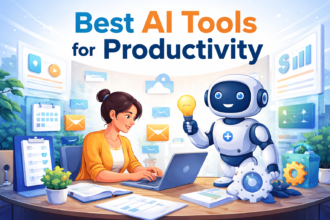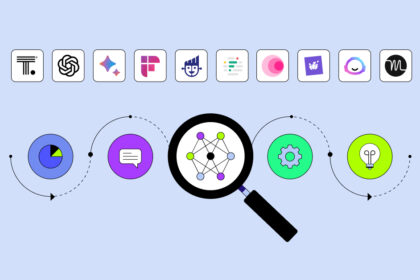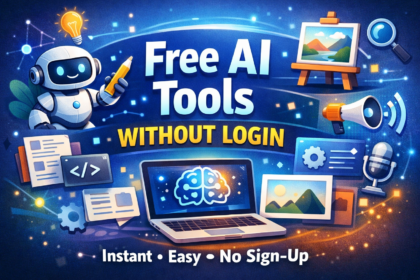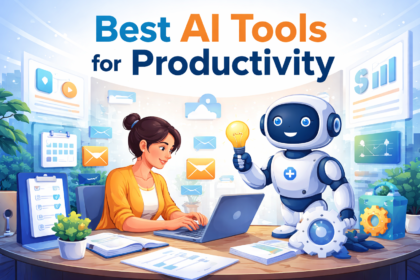How AI Customer Service Can Change the Way Businesses Work Today
In today’s digital economy, which is very connected, customer experience (CX) is what sets market leaders apart from those who are behind. Customers want support that is quick, tailored to their needs, and always available, no matter what time zone they are in or how complicated their needs are. Companies that don’t provide quick, accurate service could lose customers and money.
AI customer support is a huge step forward because it lets businesses use AI technologies to automate and improve how they provide service. Businesses can cut costs, make customers happier, and grow without sacrificing quality by setting up a 24/7 AI-powered helpdesk.

This article is an in-depth, expert-level guide on how to use AI for customer support. It covers everything from basic knowledge to best practices for integration, ways to save money, and techniques for making sure your AI system will work in the future, all of which will give you a long-term competitive edge.
AI Customer Support: Going Beyond Automation to Smart Engagement
AI customer support is more than just automating responses; it’s about making a smart, flexible system that understands the situation, predicts what customers need, and works well with human agents when needed.
The Structure of AI Customer Support Systems
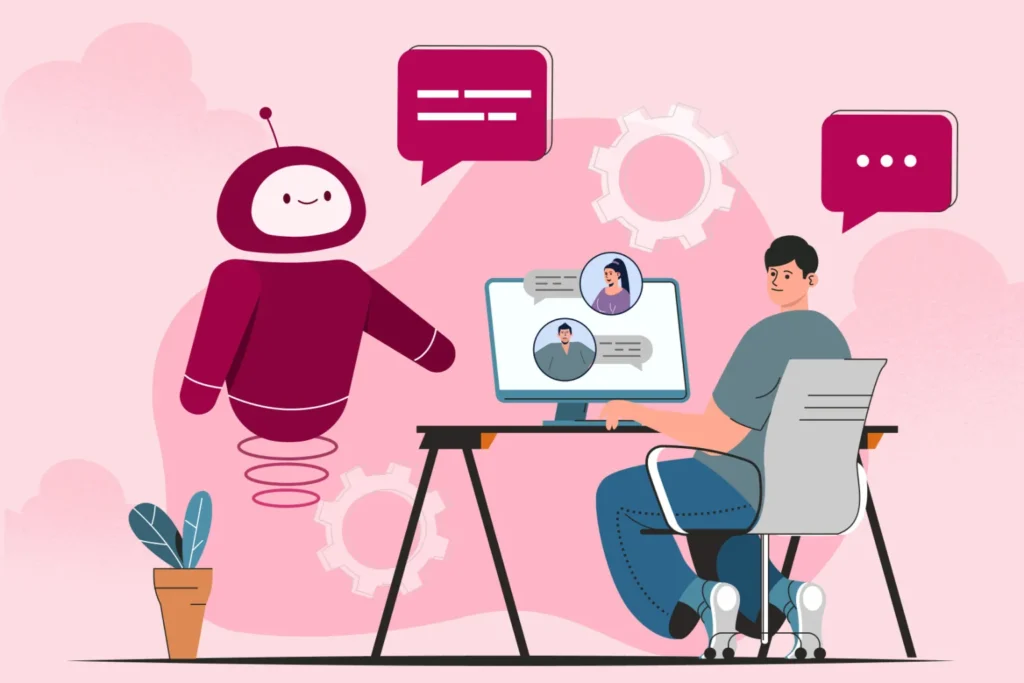
Several advanced parts make up today’s AI support platforms:
Conversational AI Chatbots
- Use natural language processing (NLP) and deep learning to understand complex human language.
- Identify user intent and deliver relevant responses or take context-appropriate actions.
Smart Ticketing and Routing
- AI algorithms sort incoming tickets by topic, urgency, and customer profile.
- Automatically route to the best agent or escalate as needed.
Self-Service AI Knowledge Bases
- Dynamic content delivery systems that learn from user interactions.
- Suggest the most useful articles or tutorials for smoother customer journeys.
CRM and ERP Integration Layers
- Seamless connection to core customer databases.
- Enable hyper-personalized interactions based on history, preferences, and lifecycle stage.
Omnichannel Orchestration
- Maintain consistent engagement across live chat, email, voice assistants, social media, and messaging apps.
Why AI Customer Support Is Important for Business Growth
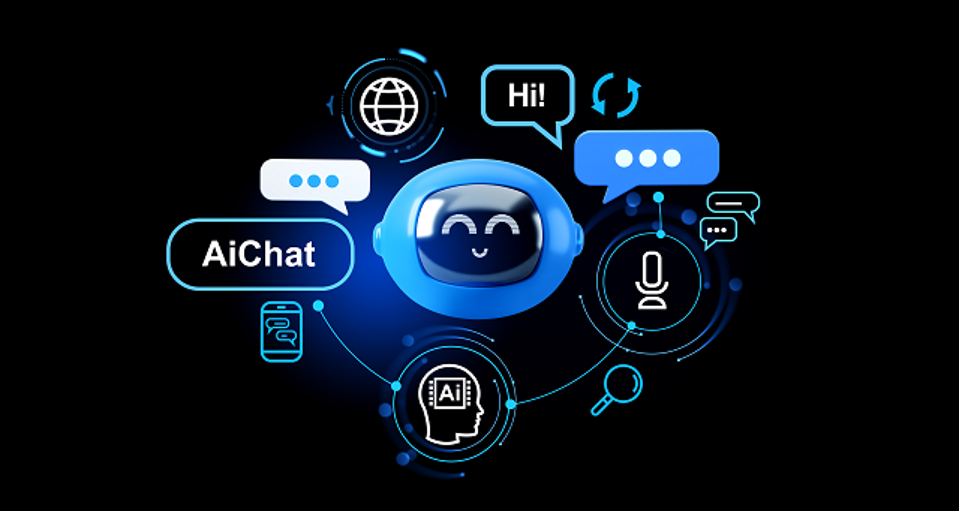
Getting the Best Value Without Sacrificing Quality
Traditional customer service is costly due to high staffing, training, and operational expenses.
AI automates routine tasks, freeing human agents for complex, high-value interactions.
Don’t Miss:
How to Start an Online Business with AI from Scratch
Providing Global Support 24/7
AI helpdesks handle unlimited interactions simultaneously with zero wait time, meeting global customers’ need for instant assistance.
Growth-Friendly Scalability
AI-powered systems automatically scale to handle traffic spikes during flash sales or product launches.
Data-Driven Insights for Continuous Improvement
- Gather structured and unstructured conversation data.
- Identify pain points, sentiment trends, and bottlenecks for data-driven CX strategies.
Consistency and Compliance
- Enforce brand guidelines and legal compliance (GDPR, HIPAA).
- Reduce human error risks.
A Closer Look at the AI Technologies That Power Customer Support

Understanding and Processing Language
- NLP enables comprehension of syntax, semantics, and sentiment.
- Transformer-based models (e.g., GPT, BERT) handle complex queries and multi-turn conversations.
Continuous Model Training & Machine Learning
- Models improve over time through supervised learning and reinforcement learning.
AI-Powered Emotion and Sentiment Analysis
- Detect customer emotions in real-time to adapt responses or trigger interventions.
Memory and Contextual Awareness
- Retain conversation history to personalize experiences and avoid repetitive questions.
Voice and Speech Recognition
- Enable natural, hands-free support via IVR, smart speakers, or mobile assistants.
Making Your AI Customer Service Plan: From Idea to Action

Setting Clear Goals and Use Cases
Common use cases include:
- Automating Tier-1 support
- Speeding onboarding
- Managing orders and returns
- Proactive notifications and troubleshooting
- Multilingual global support
Choosing an AI Customer Service Platform
Key evaluation points:
- Language and NLP capability
- CRM/ERP integration
- Uptime and scalability guarantees
- Workflow automation and customization
- Analytics and reporting tools
- Data security and compliance certifications
Examples: Zendesk AI, Salesforce Einstein, ServiceNow Virtual Agent, IBM Watson Assistant, Rasa.
Training and Improving Your AI System

- Use past tickets, chat logs, and emails for datasets.
- Add intents, entities, and sentiment labels.
- Apply transfer learning.
- A/B test conversation flows.
- Integrate continuous feedback loops.
Working Well with CRM Systems
- Access customer profiles and history in real time.
- Trigger AI actions based on lifecycle stage or sentiment.
- Automate case prioritization and routing.
- Ensure seamless human handoffs.
Change Management and Phased Rollout
- Start small with select use cases.
- Monitor KPIs before scaling.
- Involve teams early to address concerns.
How to Measure Success: Important Metrics and Analytics
Track:
- First Contact Resolution Rate
- Average Handling Time (AHT)
- Customer Satisfaction (CSAT) & Net Promoter Score (NPS)
- Containment Rate
- Cost per Contact
- Escalation Rate & Agent Utilization
Use AI dashboards to predict spikes, detect issues, and automate outreach.
How to Avoid Common Mistakes When Using AI for Customer Support

- Overreliance on AI without human oversight
- Insufficient training data
- Poor conversational design
- Lack of continuous improvement processes
- Ignoring security and privacy compliance
How AI Customer Support Will Change in the Future
- AI that understands complex emotions
- Predictive analytics for highly personalized experiences
- Real-time AI support for human agents
- Decentralized and edge AI for faster responses
- AR/VR-powered customer experiences
Success Stories in the Real World
Big Store Cuts Support Costs by Half with AI Helpdesk
- Automated order, return, and payment queries.
- 50% faster response times.
- 40% fewer support staff.
SaaS Company Uses Proactive AI Support to Reduce Churn
- Assisted onboarding and answered advanced queries.
- Identified at-risk customers via sentiment analysis.
- 20% churn reduction in 6 months.
Airline Industry Improves Disruption Management
- AI agents handled flight delays and rebooking.
- 80% self-service rate.
- Reduced call center load during peak times.
Conclusion: Using AI for Customer Support Is a Way to Stay Ahead
AI customer support enables cost-effective, scalable, and highly personalized service.
To maximize results, businesses must:
- Align AI strategies with goals
- Invest in training and CRM integration
- Foster a culture of continuous improvement
The future belongs to companies that combine smart automation with human empathy—delivering fast, reliable, and meaningful customer experiences.





